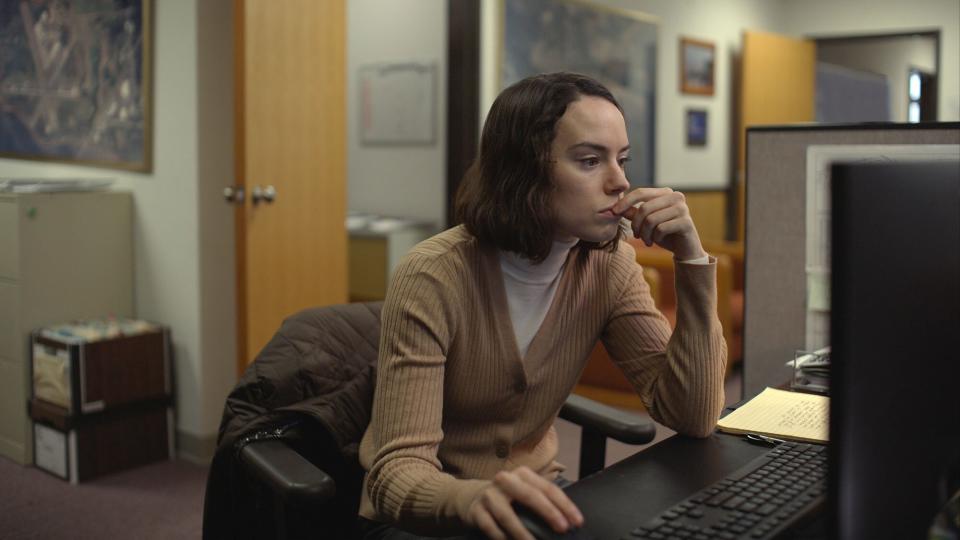Sometimes I Think About Dying review: Death becomes her

If beige were a person, it would probably look a lot like Fran (Daisy Ridley), a wan office worker who moves through life like the unwitting star of her own Paxil commercial, untouched by the small joys and in-jokes of everyone around her. She's careful to keep her world cloistered, a safe Groundhog Day of spreadsheets, 10:15 bedtimes, and sad-girl dinners for one (her favorite food, naturally, is cottage cheese). The only place Fran seems to find any pleasure at all is in her fantasies: elaborate, painterly tableaux (a glimmering forest, a Viking funeral pyre) in which she splays at the center, gloriously deceased.
That's the (sorry) deadpan gist of Sometimes I Think About Dying, a witty, surreal, and surprisingly tender character study that premiered Thursday night at the Sundance Film Festival, executed in impressively high style by writer-director Rachel Lambert (In the Radiant City). If Sometimes — adapted from a 2019 short based on the play Killers by Kevin Armento — were all interior beige, we wouldn't have much reason to stay; instead, Technicolor enters in the form of Robert (Canadian comedian Dave Merheje).

Dustin Lane Daisy Ridley in 'Sometimes I Think About Dying'
Robert doesn't really look like much of a savior: He's bald and bearded, a friendly goofball in rumpled Dockers who loves movies and pie. But he seems impervious to Fran's protective shell, and his easy joie de vivre touches something in her stultified soul. He's happy just to take her to the movies and share a slice of blueberry crumble afterward; he even gets her to attend a house party she doesn't hate. But love — or like, or whatever this might turn out to be — isn't a magic wand to be waved over clinical depression.
As the movie's two leads carry out the delicate dance of getting to know one another, Lambert cushions them in the thoughtfulness and gently skewed absurdity of her filmmaking, without tipping over into preciousness or twee. Merheje's Robert is like a happy-go-lucky puppy, open-faced and eager to taste as much life as he can; Ridley's Fran is so reserved at first she's almost the absence of a person, but her pale scrim peels back incrementally to reveal the full extent of her damaged humanity. (The supporting cast, which includes veteran character actress Marcia DeBonis and Hacks' freewheeling Megan Stalter, are also uniformly great).
Lambert makes lovely low-key use of her coastal-Oregon setting and the unhurried rhythms of life there, finding the divine in the details. If the ending feels abrupt, and the death scenarios only teasingly explored, it's probably because we want to spend a little more time with these people. Flawed and lonely and desperate to connect, they may not be destined for great or memorable things. But for Fran at least — and this odd, endearing movie — dying is not the end; it's how she learns to live. Grade: B+
Related content:

 Yahoo Home
Yahoo Home 
